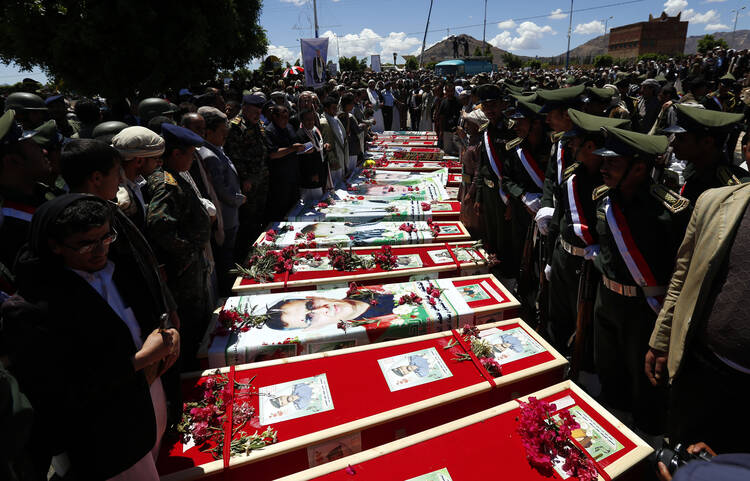The death toll in Yemen continues to pile up as the proxy war between Iran and Saudi Arabia grinds on. Human Rights Watch reports that more than 2,500 civilians have died—many under a bombardment maintained by Saudi coalition air attacks allegedly against rebel Houthi positions. H.R.W. documented 16 coalition airstrikes from April through October 2015 that appear to have violated international humanitarian law. In raids that led to at least 369 civilian deaths, H.R.W. researchers could not identify an evident military target or found that the strikes failed to distinguish civilians from military objectives.
If H.R.W.’s charges are borne out, the United States could be morally categorized as an accessory to the coalition’s possible war crimes. The air campaign would not be possible without high-tech air capacity provided by the United States to its regional allies active in the skies over Yemen.
Human Rights Watch and other humanitarian agencies have called on the United States to halt further arms sales to Saudi Arabia and urged the U.S. Congress to focus its oversight powers on future sales and the use of U.S.-supplied precision weapons and aircraft in the conflict. “How many civilians will die in unlawful airstrikes in Yemen before the coalition and its U.S. ally investigate what went wrong and who is responsible?” asked H.R.W.’s Joe Stork, deputy Middle East director. “Their disregard for the safety of civilians is appalling.”
Some U.S. senators have been roused into action by the carnage. They should be joined by fellow lawmakers. In a region already supercharged with anti-Americanism, only new enmity can be expected when shrapnel marked “made in the U.S.A.” is pulled from the bodies of noncombatants. Saudi weapons sales—and military policy—need to face more critical scrutiny by Congress.








